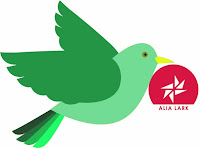By Suzana Sukovic
“In theory, theory and practice are the same. In practice, they are not.”
This clever observation was one of many interesting points raised in Liz Walkley Hall’s presentation Working as a practitioner researcher: view from the frontline. If you missed the meeting (see details), here are the slides with Liz’s talk . (
BTW, the sound quality improves after a couple of minutes. A brief conversation about the sound is in the recording for your authentic experience.)
After Liz’s thought-provoking presentation, we discussed our experiences of doing research in practice. Here are notes with some pointers how to support practice-based research.
Research mindset
- Importance of developing research mindset or a ‘habit of the mind’. Peer support is critical and may not mean that everyone in organisation is doing research, but it is important that peers understand and support the research mindset
- Groups like LARK are important in establishing peer support
- Liz’s research show that a ‘habit of the mind’ means stepping away from the problem at hand and asking, ‘What evidence am I using to support my decision?’
- Benefits – enhanced and reflective practice
What is helpful?
- Connections
o between different projects as they evolve from a particular interest and theme
o between work and studying at university
–enables tapping into different sorts of expertise
– access to people whose opinions and experience can help you without a need to look for them
– not having to divide a head space between work and study
o doing research on work-related topics – maximising opportunities if research is tied up with work outcomes; sharing with the profession; learning at conferences
Careers and publishing
- Research usually not on job descriptions (a recent exception of the University of Southern Queensland mentioned)
- Publications add to being a stronger candidate, at least in academic libraries
- In some organisations publications seen as unnecessary; no evidence of benefits of publications to LIS careers
- A wish to publish and present finished research expressed
- Starting with a peer-reviewed paper
o Collaboration
Writing with an experienced author helps; people who haven’t published before can contribute valuable ideas
Writing with a peer group
o Peer-review process
Articles turn out better after peer-reviewing
Internal reviewing with peers helps
Valuable to have someone who can interpret peer reviewers’ comments, help to apply them or explain why they haven’t been accepted – learning to deal with the whole culture around publishing
Important to step back and consider comments from a distance
We could certainly keep going as one hour passed very quickly. All of us who were there are willing to meet again and continue conversations.
Thanks to everyone who participated in discussions and to our silent audience as they made time to be with us. Special thanks to Liz for her interesting presentation and to Alycia Bailey for looking after slides and technology.











0 Comments